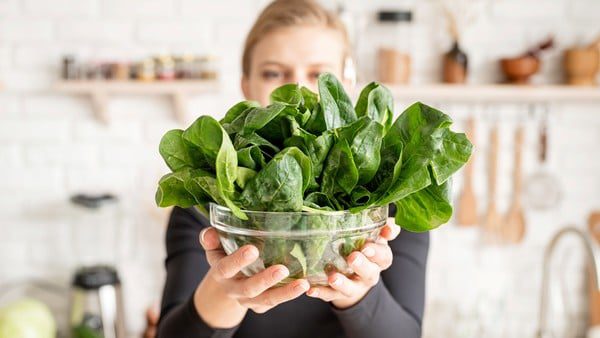Global Courant 2023-04-26 13:00:20
That we do not bleed to death when we are injured or that tissues repair themselves when damaged by an external agent are two of the basic functions of vitamin K. Despite being less well known than vitamin C or D, it could hold the secret of healthy aging.
vitamins are not boring
Now it may seem to us that studying vitamins is a boring thing, but a hundred years ago they were on the crest of the scientific wave. The name “vitamin” was proposed by the biochemist Casimir Funk in 1912. He used it to refer to essential substances in the diet, in small amounts, to maintain health.
From the isolation of thiamine (vitamin B1) in 1910 to that of folic acid in 1941, the study of these substances was a very active field in chemistry and physiology. The Nobel Prizes of 1929, 1930, 1934, 1937, 1938, and 1943 were awarded for identifying and describing the functions of different vitamins.
Specifically, the history of vitamin K (Nobel Prize winner in 1943) is closely linked to coagulation. The name derives from the Danish “koagulation” and from the earlier proposed vitamin being vitamin J (flavin), now renamed vitamin B2. It was discovered by detecting a substance in the diet with an antihemorrhagic effect, that is, it prevented bleeding.
Shortly after, the presence of substances in poor forage was discovered that produced the opposite effect in cattle: the animals began to bleed spontaneously.
When these prohemorrhagic compounds were isolated, it was observed that their structure was similar to vitamin K. This led to their use in medicine as the first oral anticoagulants to prevent blood clots. They are what we call antivitamin K, such as acenocoumarol, which act by competing with vitamin K.
Vitamin K has multiple functions. Photo Shutterstock.
How does vitamin K work?
Although the effect of this vitamin on coagulation was known since the 1950s and antivitamin K was used, it was not until the 1970s that we really began to understand how it works.
Vitamin K is necessary to modify the structure of some amino acids that make up a few proteins (less than twenty) that we call “vitamin K-dependent proteins”. Prominent among them is prothrombin, which is the central regulator of the coagulation cascade.
The modification in which vitamin K intervenes is irreversible and gives rise to a new amino acid called gamma-carboxyglutamic acid. This amino acid is capable of trapping calcium ions like tweezers.
The combination of protein with calcium allows it to have special functions, including binding to the outer part of cell membranes or to certain cell receptors, depending on the calcium concentration.
Mammals aren’t the only animals that use vitamin K. Going a bit farther in evolution, the Conus textile mollusk uses vitamin K-dependent neurotoxins to hunt its prey. And although the conch in the photo seems harmless, be careful, because more than thirty fatal poisonings have been described from its stings.
tissue repair systems
For those of us who work in this field, it came as a surprise when, in the 1990s, a new vitamin K-dependent protein, very similar to coagulation proteins, was isolated that was capable of activating a family of cell receptors related to those of hormones. of growth.
This protein, GAS6, and its partner in the regulation of coagulation, protein S, are able to help the cells of the immune system to recover damaged tissues.
Its mechanism of action is explained in two strokes. What they do to regulate inflammation is to help eliminate cells that are in the process of irreversible death and to regenerate new cells. Our studies showed that, in addition, they induced fibrosis in organs such as the liver, a very important process to respond to chemical and nutritional damage such as alcohol, certain diets or toxic substances.
Damage to the cells that make up our organs, accumulated over the years of life, are part of the aging process. Therefore, repair systems such as those represented by these vitamin K-dependent proteins increase in importance as the years go by.
To maintain healthy aging, various scientists have proposed increasing the intake of vitamin K in the elderly. This could prevent vessel calcification, improve bone health, and strengthen tissue repair systems.
Actually, vitamin K deficiencies are very rare in humans and occur mainly in newborns, because vitamin K hardly crosses the placental barrier.
Therefore, at birth, the deficiency is compensated by supplying a dose of vitamin K to prevent possible bleeding, which is rare, but with devastating consequences. In Europe it has been done for more than 50 years to almost all newborns.
A varied diet is enough to cover the daily need for vitamin K. Photo Shutterstock.
More spinach, cabbage and chard
In adults, vitamin K deficiencies occur only when there are intestinal absorption disorders. This is because the intestinal flora itself produces vitamin K precursors, so a varied diet is enough to cover the daily need for this micronutrient.
However, for these new functions related to aging, such as the reduction of osteoporosis and calcification of the vessels, increase the intake of vitamin K by consuming foods rich in it (spinach, chard, cabbage and green leafy vegetables in general). could improve health.
And although there is still much to be investigated, it seems that to these advantages we would add the maintenance of inflammation repair and regulation systems.
*Pablo García de Frutos is director of the Hemostasis and Immunity Group, Barcelona Institute for Biomedical Research (IIBB – CSIC). The original article was published in The Conversation.
***
Do you want to read more about healthy aging?
➪Disseminate a complete guide to maintain physical health after 60 years
➪5 tips to live longer and better: “We can be the architects of our aging”, says a specialist in geriatrics
➪Food, physical activity, sleep and sexuality after 60: the advice of a self-care manual
***
➪ Do you have any questions about health and well-being that you would like us to address in section notes? Enter the Clarín Help Center by clicking here, enter Message to the newsroom and then Questions to Buena Vida. Write us your query and send. Done!








